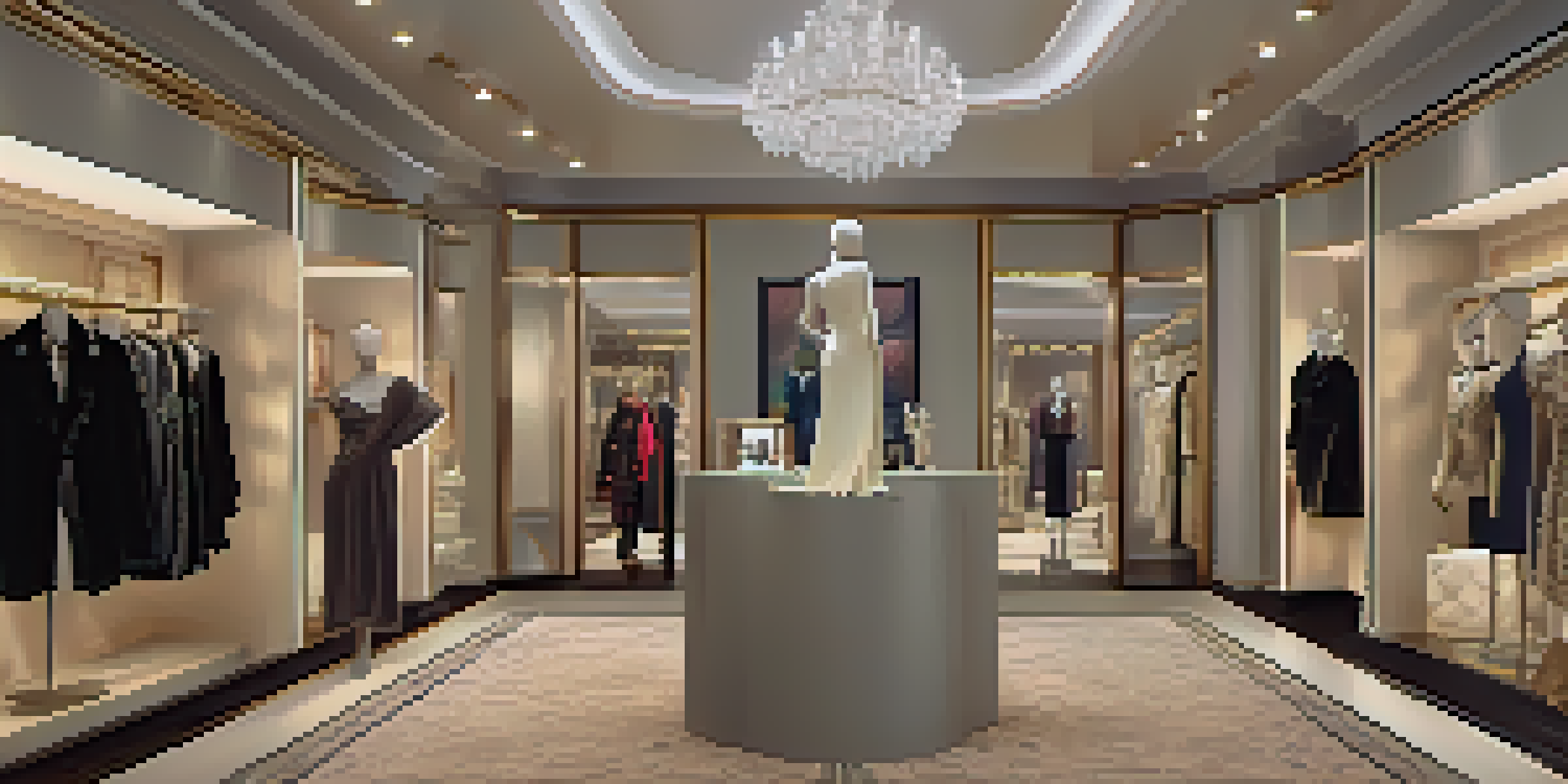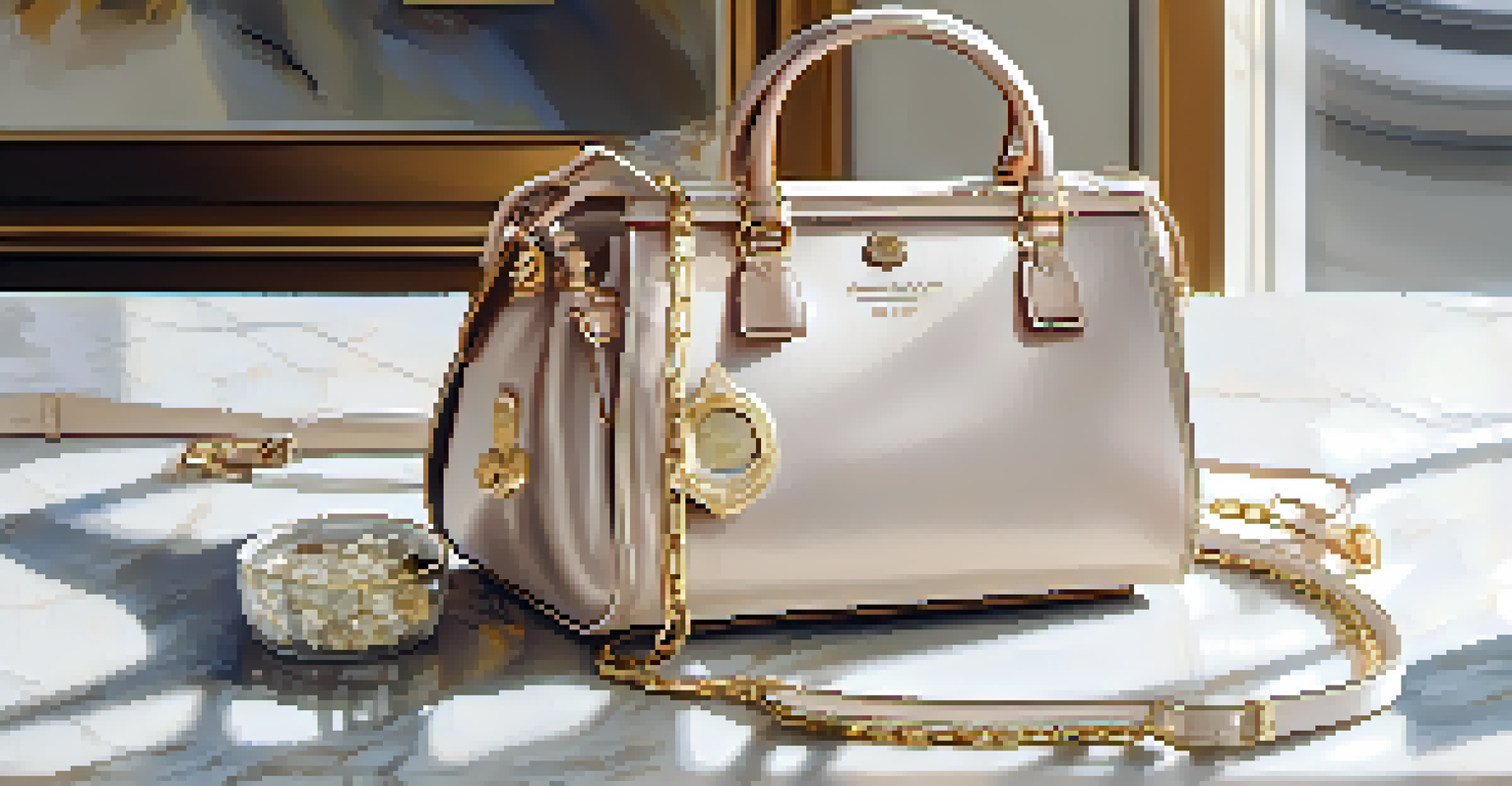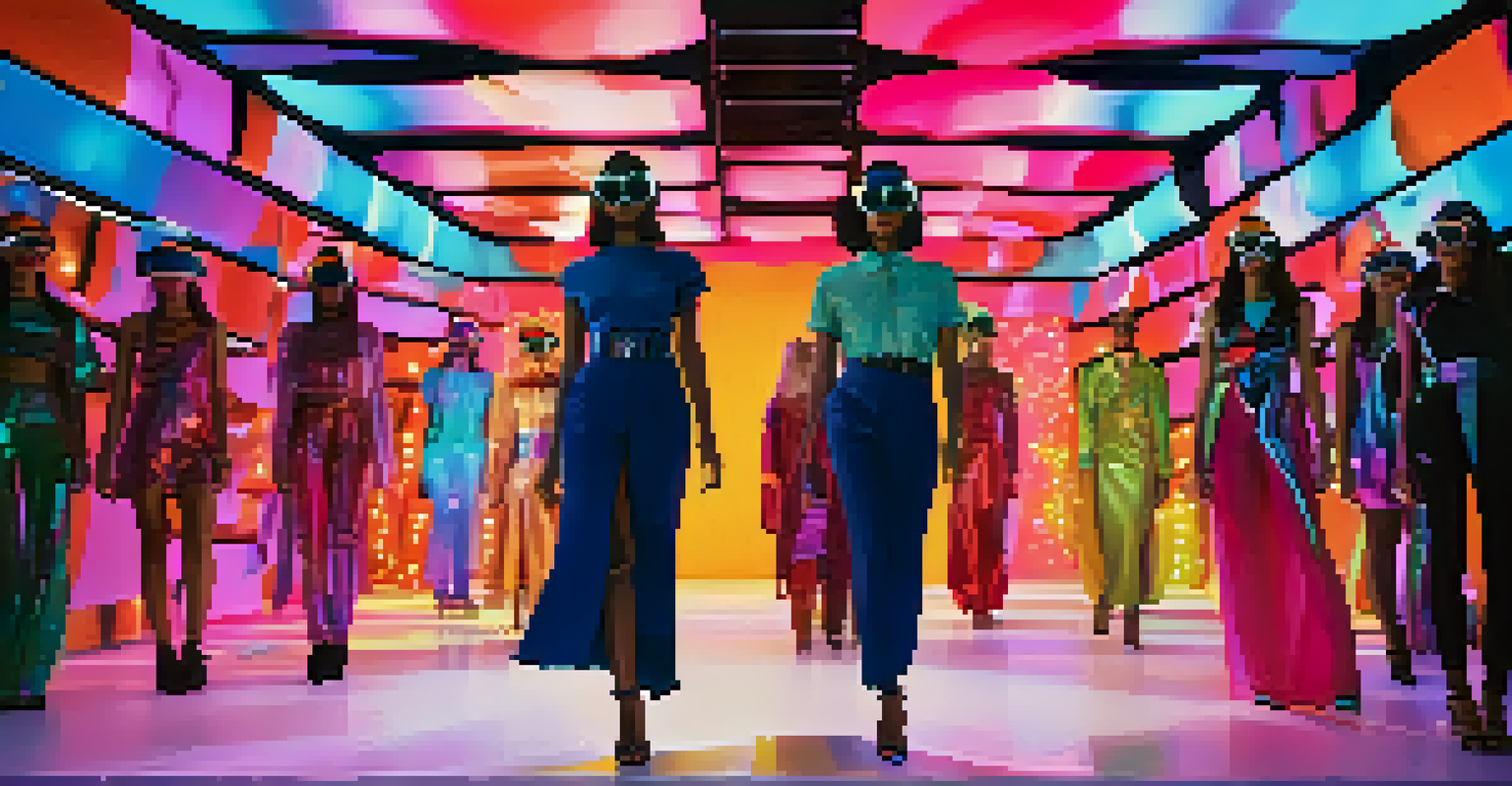The Role of Digital Innovation in Luxury Fashion Trends

The Intersection of Digital Technology and Luxury Fashion
Digital technology has become an integral part of the luxury fashion world. With the rise of e-commerce and social media, brands are now able to connect with customers in unprecedented ways. This intersection not only enhances the shopping experience but also enables brands to maintain their exclusivity while reaching a broader audience.
Digital technology has transformed the luxury fashion industry, allowing brands to connect with consumers in ways we never imagined.
For instance, luxury brands are leveraging platforms like Instagram and TikTok to showcase their collections and engage with younger consumers. These platforms allow for creative storytelling, where brands can share the craftsmanship and heritage behind their products, making them more relatable and desirable.
In essence, the fusion of digital technology with luxury fashion creates a dynamic environment that constantly evolves, making it essential for brands to stay ahead of trends and consumer preferences.
Personalization: A Key Driver in Luxury Fashion
One of the most significant benefits of digital innovation is the ability to offer personalized shopping experiences. Luxury fashion brands are now using data analytics to understand individual customer preferences, leading to tailored recommendations. This not only enhances customer satisfaction but also fosters brand loyalty.

Imagine receiving a curated selection of items based on your past purchases or browsing behavior – that’s the power of personalization. This approach transforms the shopping journey into something unique, making customers feel valued and understood.
Digital Tech Enhances Luxury Fashion
Digital technology is transforming luxury fashion by enabling brands to connect with customers and maintain exclusivity through innovative platforms.
As technology continues to evolve, we can expect even more innovative personalization strategies, such as AI-driven styling assistants that provide real-time feedback based on your style choices.
Sustainability Through Digital Innovation in Fashion
Sustainability is a growing concern in the luxury fashion industry, and digital innovation plays a crucial role in addressing it. Brands are now utilizing technology to track their supply chains, ensuring ethically sourced materials and environmentally friendly practices. This transparency is becoming increasingly important to consumers.
Sustainability and innovation are no longer just trends; they are the future of luxury fashion.
For example, blockchain technology is being employed to provide consumers with verifiable information about the origins of their products. This not only reassures buyers about their purchases but also enhances brand integrity.
By embracing digital tools for sustainability, luxury brands can not only meet consumer demand but also position themselves as leaders in responsible fashion.
Virtual Reality: Transforming the Luxury Shopping Experience
Virtual reality (VR) is revolutionizing the way consumers experience luxury fashion. By providing immersive experiences, brands can showcase their collections in a more engaging way. Imagine being able to walk through a virtual runway show from the comfort of your home – that’s the future of luxury shopping.
This technology allows customers to interact with products in a 3D environment, giving them a sense of scale, texture, and detail that photos alone cannot provide. It bridges the gap between online and offline shopping experiences, making luxury more accessible.
Personalization Drives Customer Loyalty
Luxury brands are leveraging data analytics to offer personalized shopping experiences, enhancing customer satisfaction and fostering loyalty.
As VR technology becomes more mainstream, we can anticipate that luxury brands will continue to explore creative ways to integrate it into their marketing strategies.
Social Media's Influence on Luxury Fashion Trends
Social media platforms have become powerful marketing tools for luxury fashion brands. With millions of users sharing their style and engaging with brands, platforms like Instagram and Pinterest have a significant impact on trends. This digital word-of-mouth can drive sales and elevate brand visibility in a crowded market.
Moreover, influencers play a pivotal role in shaping consumer perceptions of luxury. A single post from a trusted influencer can create a buzz around a brand or product, making it a must-have item. This dynamic creates a unique blend of aspiration and accessibility that's characteristic of modern luxury.
As social media continues to evolve, luxury brands must adapt their strategies to harness its full potential, ensuring they stay relevant in a fast-changing landscape.
E-commerce Innovations in Luxury Fashion
The rise of e-commerce has transformed the luxury shopping experience, offering convenience and accessibility. Luxury brands are adopting innovative technologies like augmented reality (AR) to enhance the online experience. AR allows customers to visualize how products look and fit without having to visit a store.
Additionally, luxury e-commerce sites are focusing on providing a seamless user experience, from browsing to checkout. Features such as one-click purchasing and virtual try-ons are streamlining the shopping journey, making it easier for consumers to indulge in luxury.
Sustainability Through Digital Tools
Digital innovation is crucial for luxury fashion brands in their efforts to ensure ethical practices and sustainability, appealing to the conscious consumer.
These innovations not only cater to the needs of modern shoppers but also help luxury brands maintain their prestige in an increasingly digital world.
The Future of Luxury Fashion in a Digital World
As digital innovation continues to shape luxury fashion, the future looks promising. Brands that embrace technology will likely thrive, as they can create more engaging, personalized experiences for their customers. This forward-thinking approach not only enhances brand loyalty but also attracts new clientele who value innovation.
Moreover, the integration of digital tools will facilitate better communication between brands and consumers, fostering a sense of community around luxury fashion. As consumers become more conscious of their choices, brands will need to adapt to meet these evolving expectations.

Ultimately, the luxury fashion landscape will continue to evolve, driven by digital innovation and a commitment to sustainability, personalization, and accessibility.